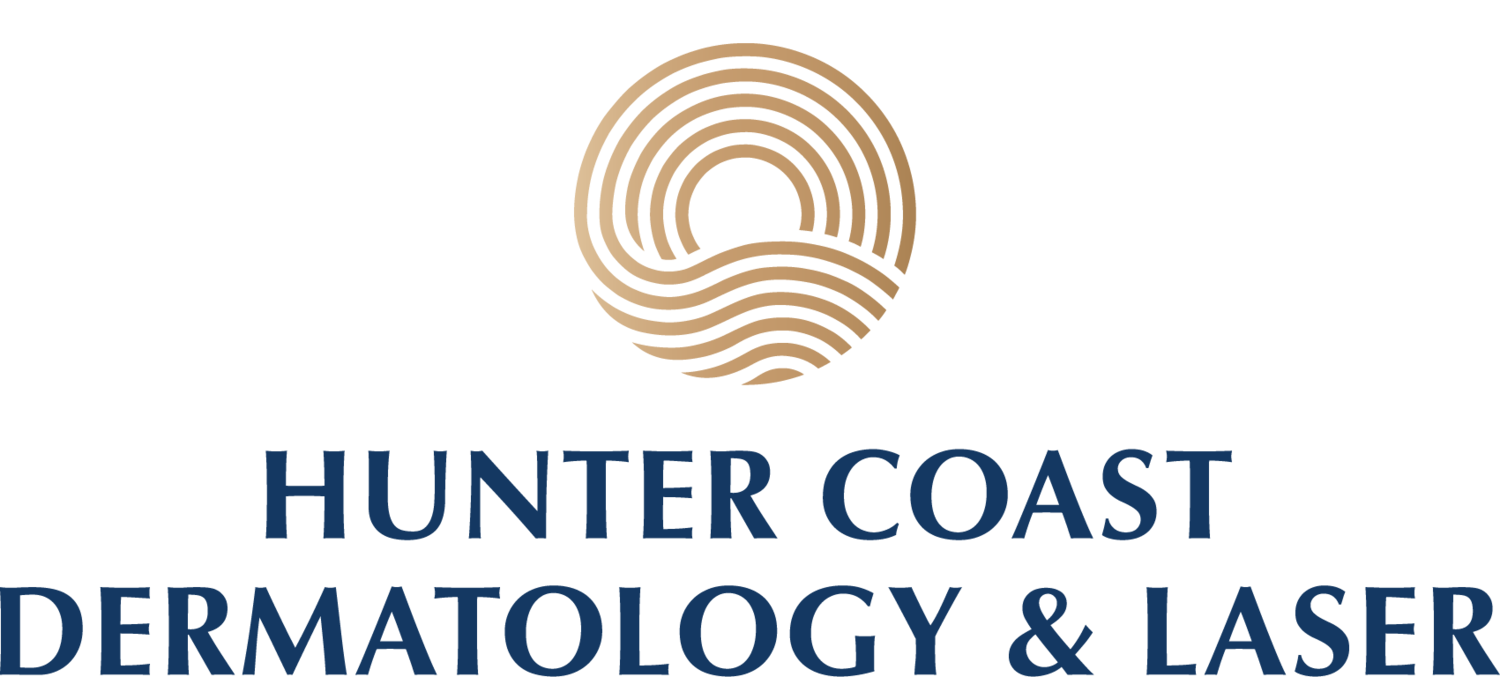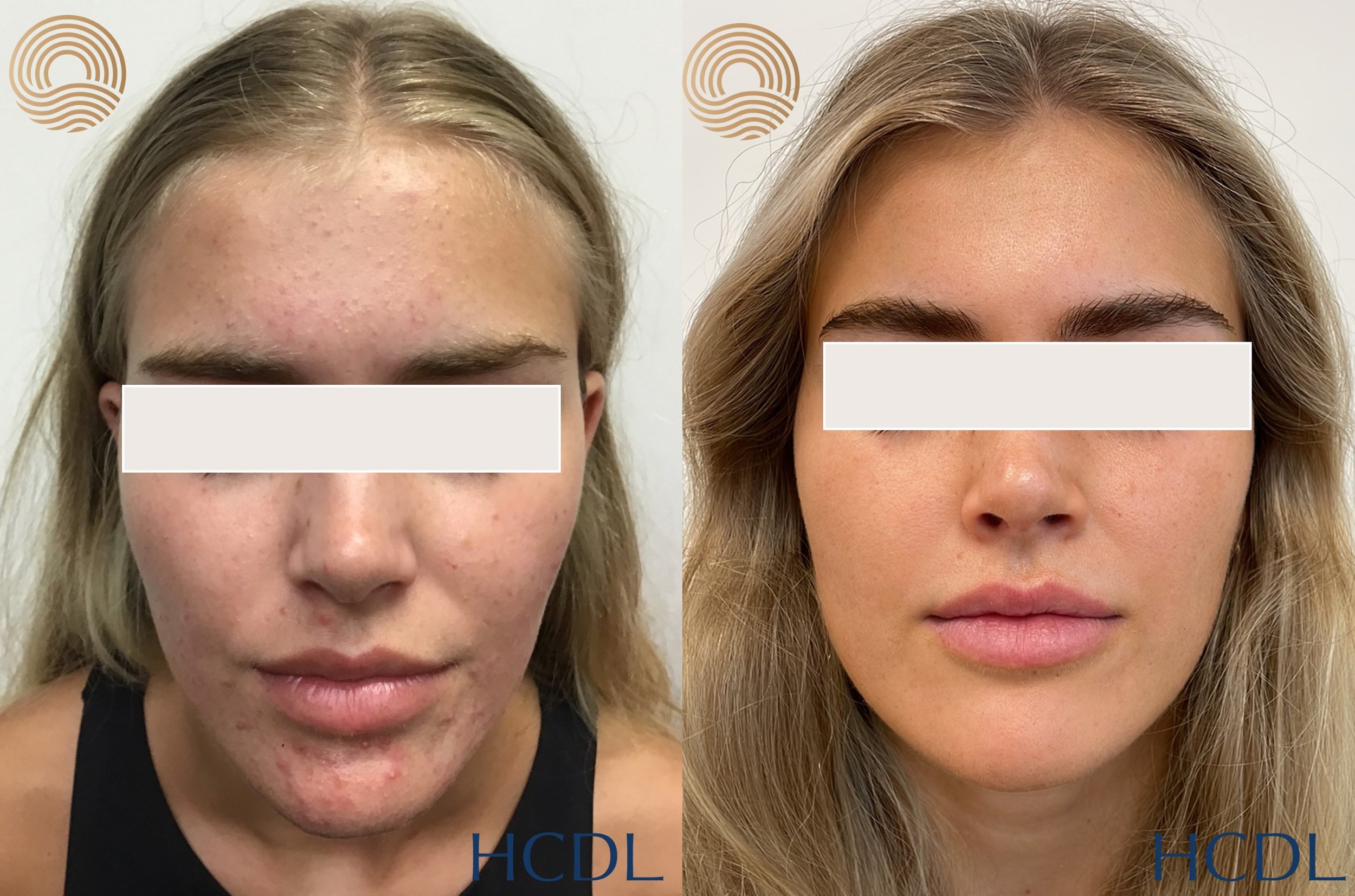
Acne
Are you struggling with acne?
Take our 30-second quiz to find out if our tailored, Dermatologist led medical and laser acne management treatments are right for your skin concerns!
Before & After: Medical management and Vascular laser treatments.
What is acne?
Acne, more commonly referred to as pimples or zits, is a very common skin condition. Acne affects approximately 85% of 12-24 year olds, but acne can occur at any age.
Acne can be mild, moderate or severe, and consists of inflamed red or pus-filled spots, whiteheads, and blackheads. When acne is more severe, there can be tender cysts or lumps under the skin. Acne most commonly affects areas of the face, chest and back, but can occur elsewhere.
Acne is a condition that can significantly affect someone’s quality of life, and many people try to treat the condition themselves. Many over the counter creams, washes, scrubs and supplements exist for acne. Though these products may work for some patients, they often can inflame the skin and make acne worse, because they do not target the actual cause of the condition.
There are many risks associated with home acne treatments, and mismanaged acne may result in lifelong, irreversible scarring. It is important to speak to a dermatologist so that you can achieve the best outcome for your condition.
Results After Laser Genesis & Medical Management


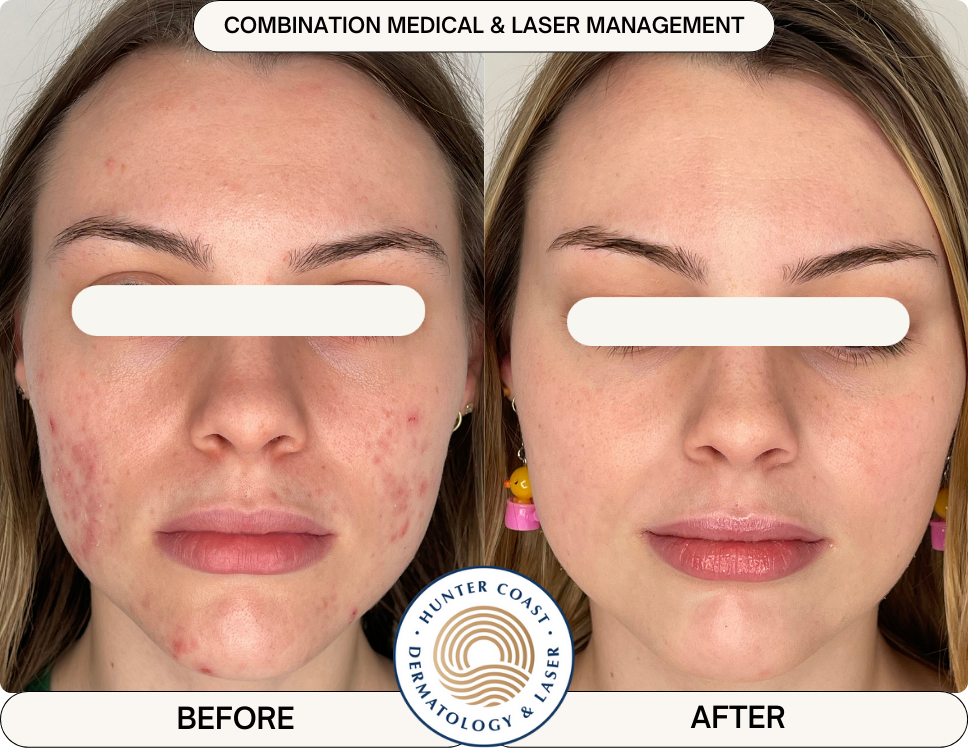









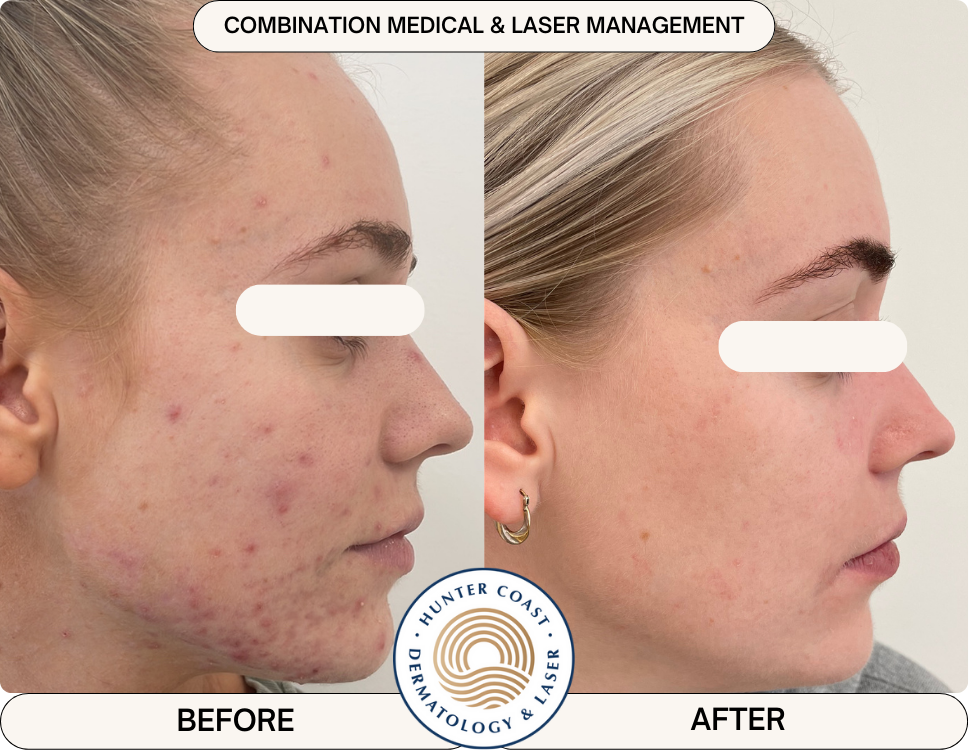


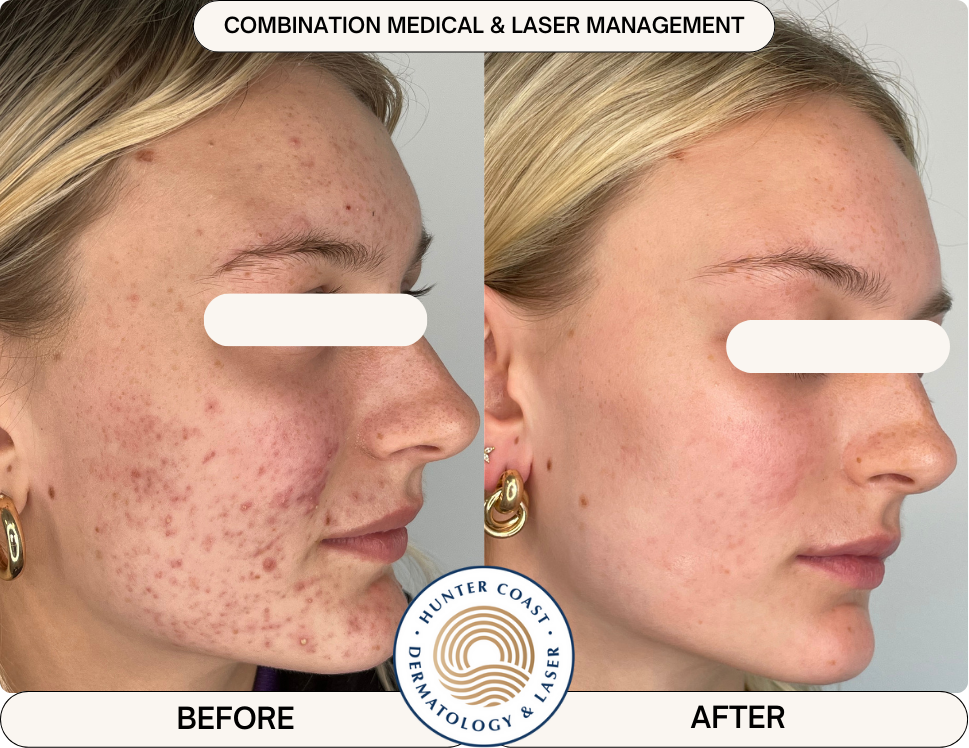




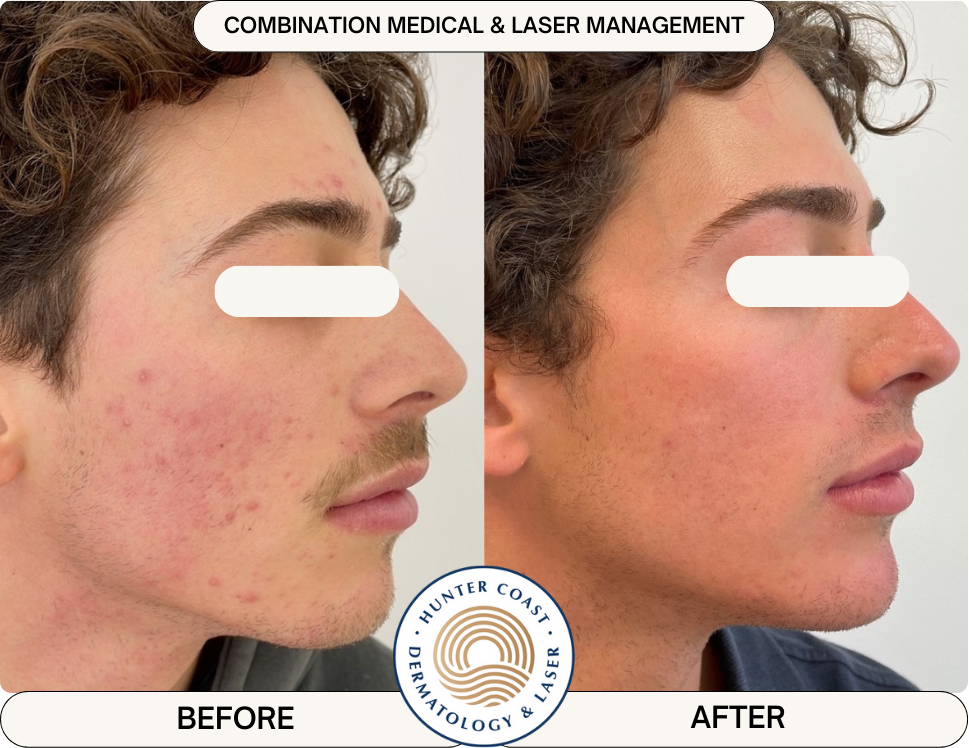
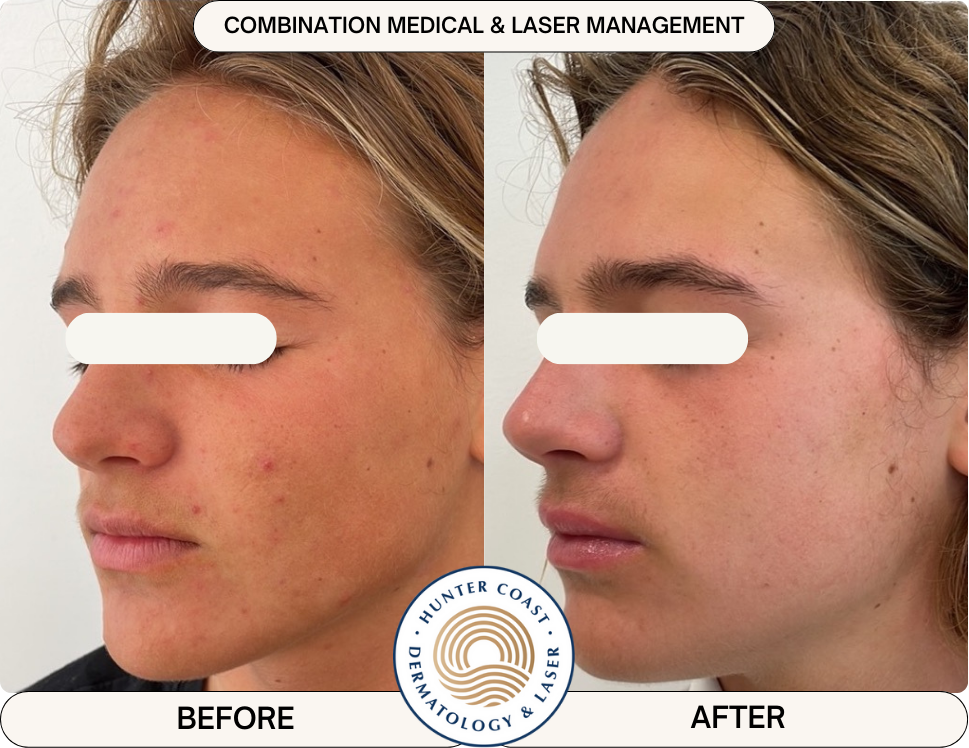

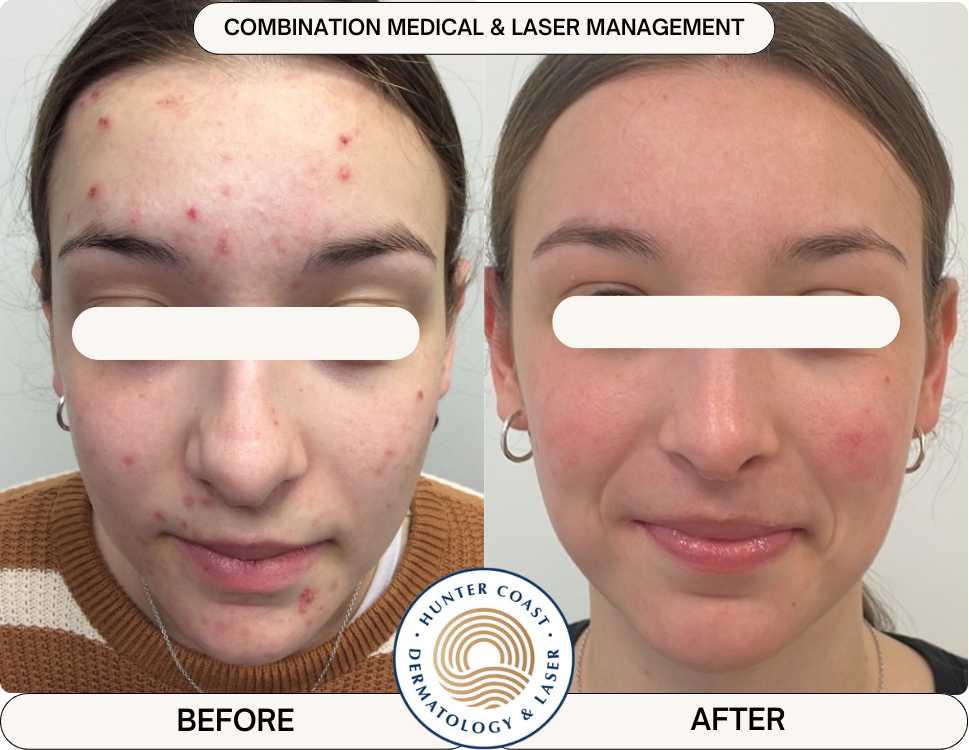


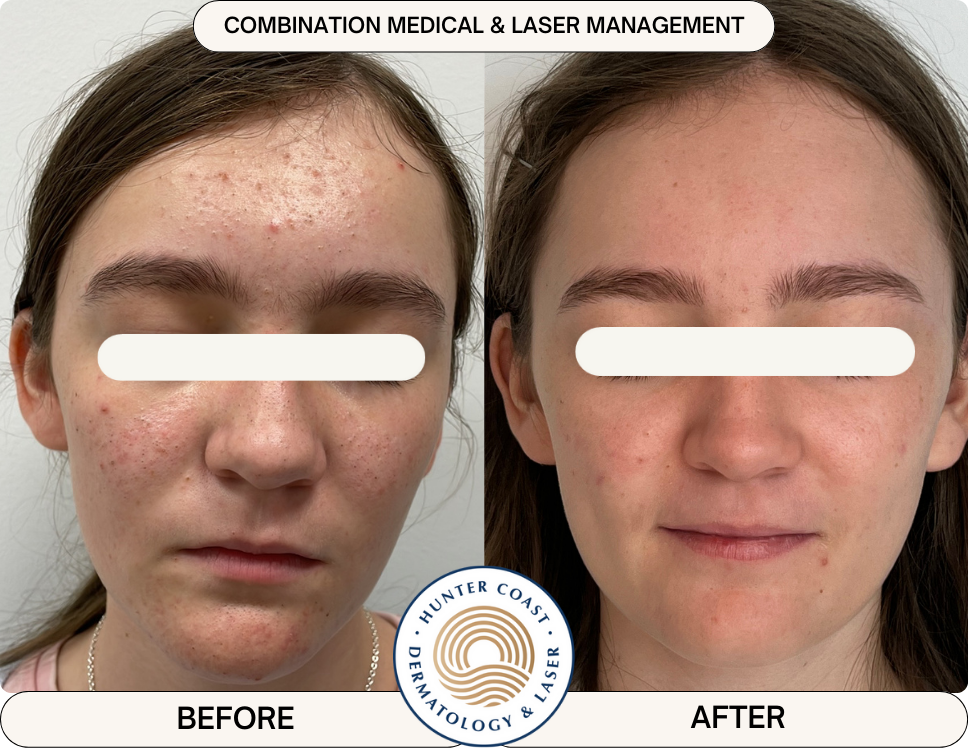




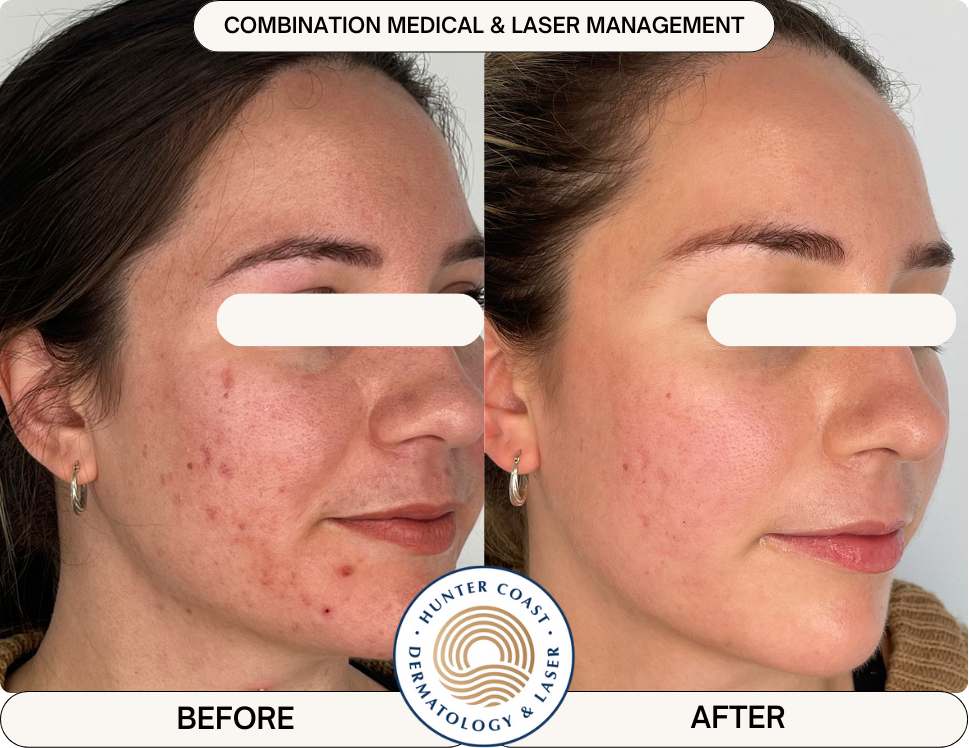
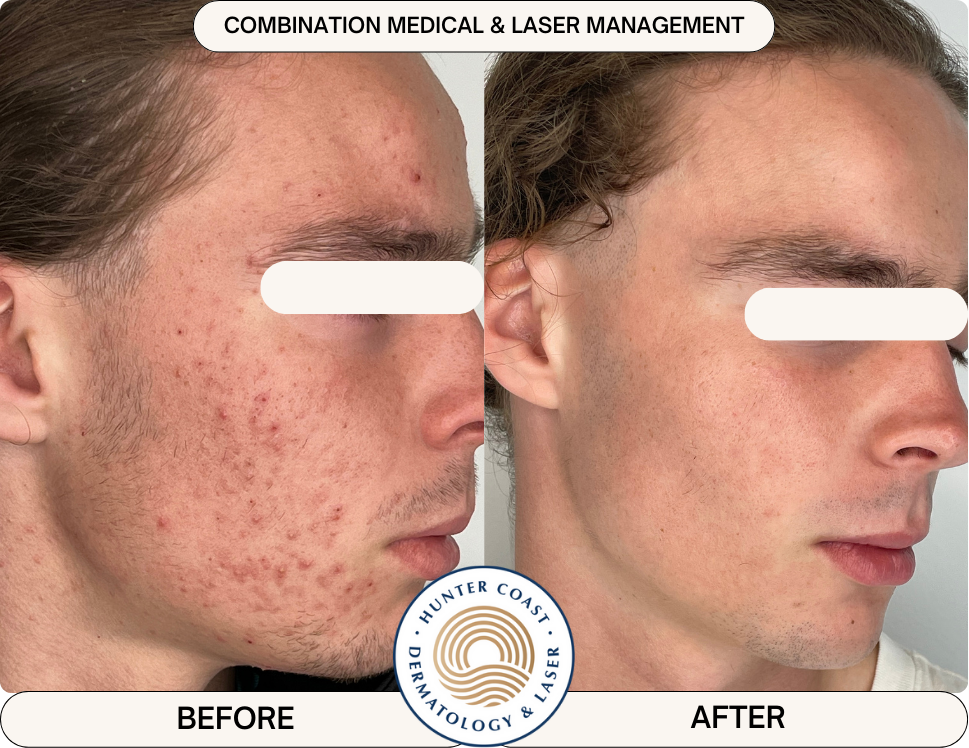
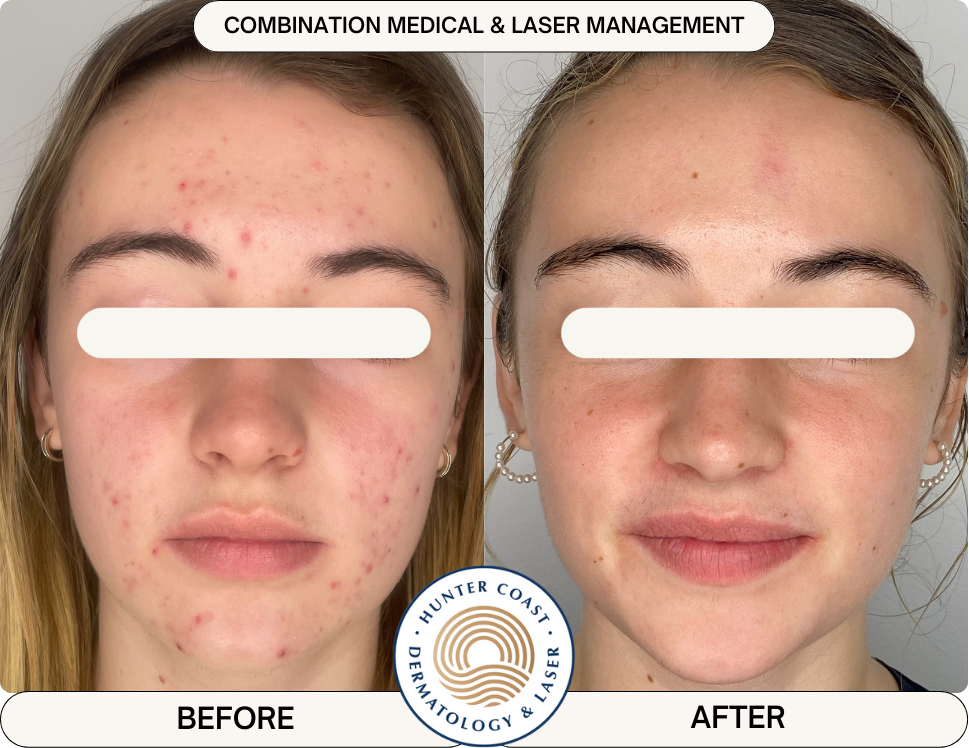













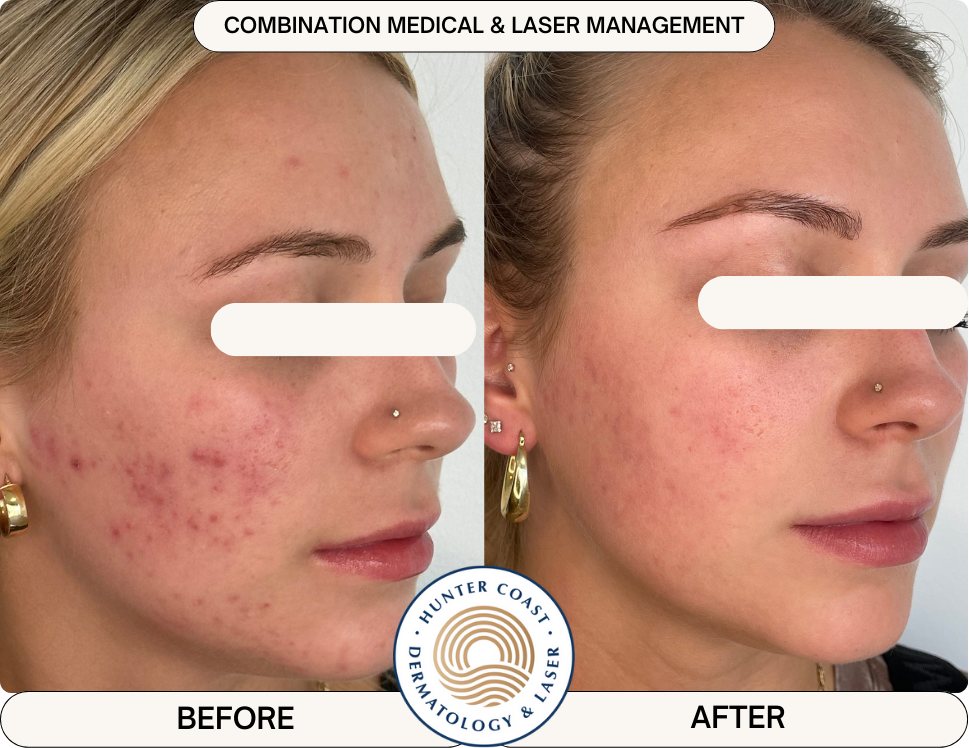

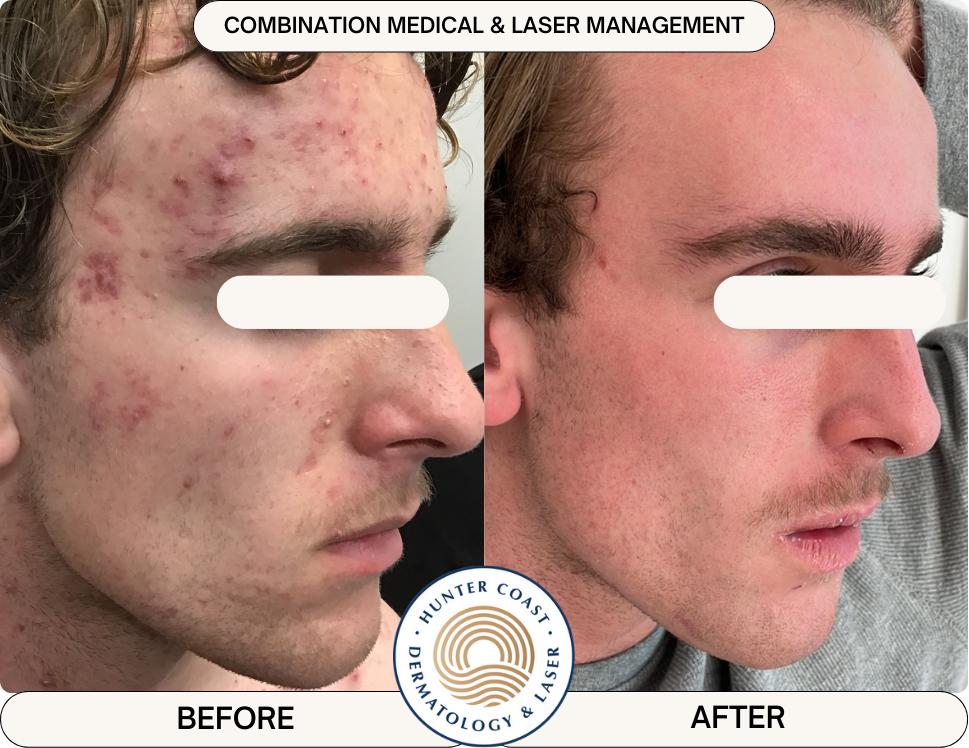

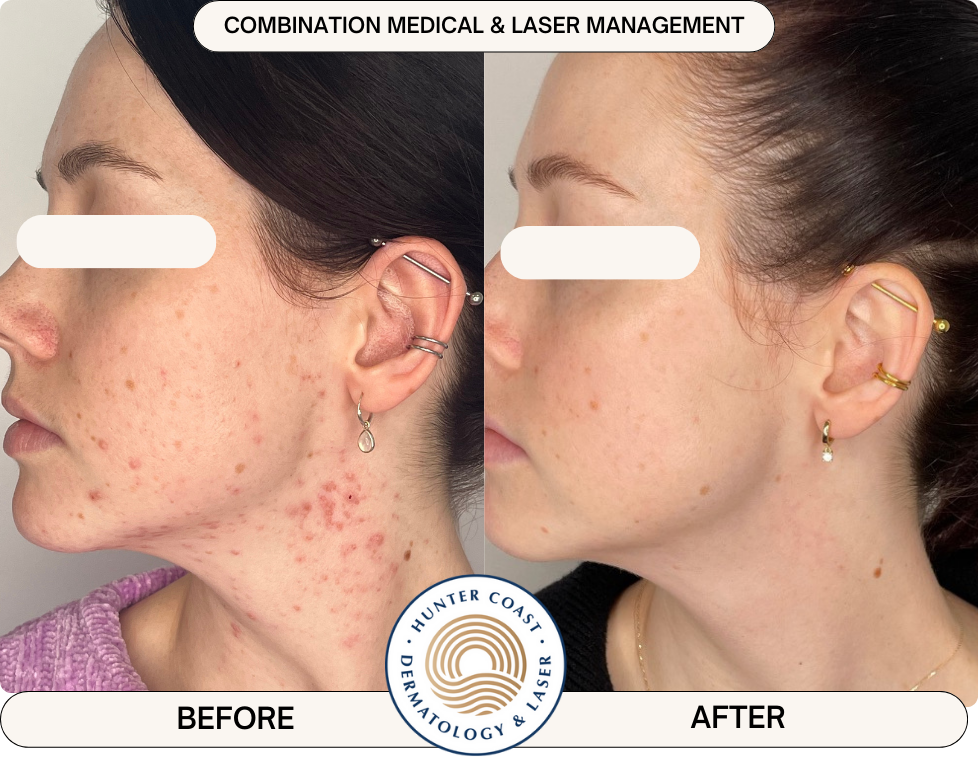












Acne is best treated with a combination of Medical and Laser treatment to achieve the best result
Dermatologists are the most experienced specialists in the treatment of Acne.
Our Dermatologists use Medical management alongside micropulse laser, ‘laser genesis’ and LED light to eliminate acne and significantly improve acne scarring.
To learn more about our Laser Genesis and LED Acne Package click here.
What causes acne?
It is widely believed that acne is caused by unclean skin, and that acne can be ‘fixed’ by simply cleansing more. This is not true, and though bacteria plays a role in acne, there are many other factors involved.
Many factors play a role in acne. Pimples form when the glands of the skin become blocked by sebum (oil), bacteria and dead skin cells. The blockage of these glands causes a build-up to form, and your immune system responds to this by creating inflammation. This inflammatory response causes the redness, swelling and tenderness of pimples.
Some additional factors that can contribute to acne include:
hormones
genetics
stress
diet
medication
There are other factors beyond these that may also play a role, and the cause of acne can differ between individuals. To properly treat the condition, it is important to take each person’s unique factors into account and to frame the treatment approach around the root causes.
Adult acne
Many people suffer from acne long beyond their teenage years, believing that they will ‘grow out of it’. It is commonly believed that acne only affects teenagers, and goes away after this age, but for many people this is not the case.
Adult acne, also called hormonal acne, affects people in their twenties, thirties and beyond. This type of acne more commonly affects the lower part of the face around the chin, mouth and jaw-line. The pimples tend to be deeper, more painful and last longer. Breakouts can often vary with a person’s menstrual cycle, but anyone can be affected by adult acne. It can be very frustrating for patients, as they feel they should have ‘grown out’ having pimples.
If you have concerns about adult acne, your dermatologist will discuss these with you and tailor a treatment plan to your needs.
Treatment of acne
Acne is a treatable condition, and there are many safe and effective options available to improve the symptoms. These options vary depending on the condition, and is important to get advice that’s specific to the type and severity of someone’s acne.
With the right treatment, acne can almost always be improved and in many cases, cleared. Most importantly, the risk of scarring is significantly reduced when acne is treated early and appropriately by a trained specialist. Dermatologists are experts in managing acne, and will tailor treatment to suit each patient. Factors which will be to be taken into consideration include the pattern of acne, its severity, the person’s age, skin type, any past treatments and other medical history.
It is normal to want a ‘quick fix’ when treating acne, but in reality it takes patience and persistence to work towards clear skin. Most treatments will take at least 6-8 weeks to see improvement.
Common treatment options for acne
Common treatment options for acne include:
Good general skin care measures – the wrong skin care products may aggravate your skin and make acne even worse.
Non-prescription creams and lotions - many useful acne products can be purchased from supermarkets or pharmacies. Your dermatologist will discuss your current skin care routine with you and see if improvements can be made.
Prescription-only creams such as topical retinoids, topical antibiotics, and azelaic acid
Oral antibiotics
Hormonal mediations
Oral retinoids
Skin colour changes during and after acne
Skin colour changes during and after acne are very common. This phenomenon in known as ‘post-inflammatory redness or pigmentation’ and is where the inflammation from the pimples causes red or brown marks to be left on the skin.
These colour changes will improve over time, but it can be very slow and take 6-18 months. Sun protection is very important in helping these colour changes to fade. Other treatment options are bleaching creams, topical retinoids, laser and light based therapies.
